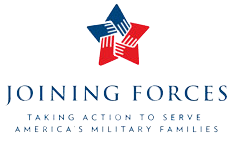McKendree University School of Nursing Joins Forces with the First Lady and Dr. Biden to Support Veterans and Military Families
 Will Educate Students on PTSD and Traumatic Brain Injury to Better Serve Veterans
Will Educate Students on PTSD and Traumatic Brain Injury to Better Serve Veterans
Lebanon, Ill. & Radcliff, Ky. — The McKendree University Division of Nursing has joined a nationwide coordinated effort of over 500 nursing schools and more than
150 state and national nursing organizations to further educate the nation’s 3 million
nurses to meet the unique health needs of service members, veterans and their families.
On Apr. 11, First Lady Michelle Obama and Dr. Jill Biden announced a commitment from
nurses across the country eager to serve veterans and military families as well as
they have served us. Led by the American Nurses Association, American Academy of Nurse
Practitioners, American Association of Colleges of Nursing, and the National League
for Nursing, in coordination with the Departments of Veterans Affairs and Defense,
nursing organizations and schools have committed to educating current and future nurses
on how to recognize and care for veterans impacted by post-traumatic stress disorder,
traumatic brain injury, depression, and other combat-related issues, in ways appropriate
to each nurse’s practice setting.
“This is a wonderful opportunity for our nursing students to gain the skills and knowledge
necessary to better serve our veteran population. We are proud to be participating
in this program.” said Dr. Richelle Rennegarbe, chair of the Nursing Division at McKendree
University.
As one of over 500 nursing schools in all 50 states, D.C. and Puerto Rico, the McKendree
University Division of Nursing has pledged by 2014 to do the following:
• Educate America’s future nurses to care for veterans, service members, and their
families facing post-traumatic stress disorder, traumatic brain injury, depression,
and other clinical issues.
• Enrich nursing education to ensure that current and future nurses are trained in
the unique clinical challenges and best practices associated with caring for military
service members, veterans, and their families.
• Integrate content that addresses the unique health and wellness challenges of our
nation’s service members, veterans, and their families into nursing curricula.
• Share teaching resources and applying best practices in the care of service members,
veterans, and their families.
• Grow the body of knowledge leading to improvements in health care and wellness for
our service members, veterans, and their families.
• Join with others to further strengthen the supportive community of nurses, institutions,
and healthcare providers dedicated to improving the health of service members, veterans,
and their families.
“Whether we’re in a hospital, a doctor’s office or a community health center, nurses
are often the first people we see when we walk through the door. Because of their
expertise, they are trusted to be the frontline of America’s health care system,”
said First Lady Michelle Obama, in a press release issued by the American Association
of Colleges of Nursing (AACN).
“Nurses are at the center of providing lifesaving care in communities across the country
-- and their reach is particularly important because our veterans don't always seek
care through the VA system,” added Dr. Jill Biden in the prepared statement. “This
commitment is essential to ensuring our returning service men and women receive the
care they deserve.”
The invisible wounds of war, Post-Traumatic Stress Disorder (PTSD) and Traumatic Brain
Injury (TBI), have impacted approximately one in six troop members returning from
Afghanistan and Iraq – more than 300,000 veterans. Since 2000, more than 44,000 of
those troops have suffered at least a moderate-grade traumatic brain injury.
Veterans seeking care within the Veterans Affairs (VA) health system are often treated
by health care professionals who have received extensive training in mental health
issues. However, the majority of veterans in the country seek care outside of the
VA system -- they usually visit their local hospital staffed by nurses and doctors
in their communities. America’s nurses provide lifesaving and life-sustaining care
in nearly every community and every setting where health care is delivered. They can
make a dramatic and positive impact on the long-term health of hundreds of thousands
of veterans. And they are eager to understand the needs of those who have served,
to recognize the warning signs of posttraumatic stress disorder, depression, or suicide,
and to know where to send them for help.
Nursing leaders have also committed to disseminating effective models for care and
to sharing the most up-to-date information on these conditions across academic and
practice settings. By working to expand the clinical knowledge in this arena and by
partnering with other health care providers and institutions, nursing leaders will
continue to advance high quality treatment for these conditions in every community.
-McK-
